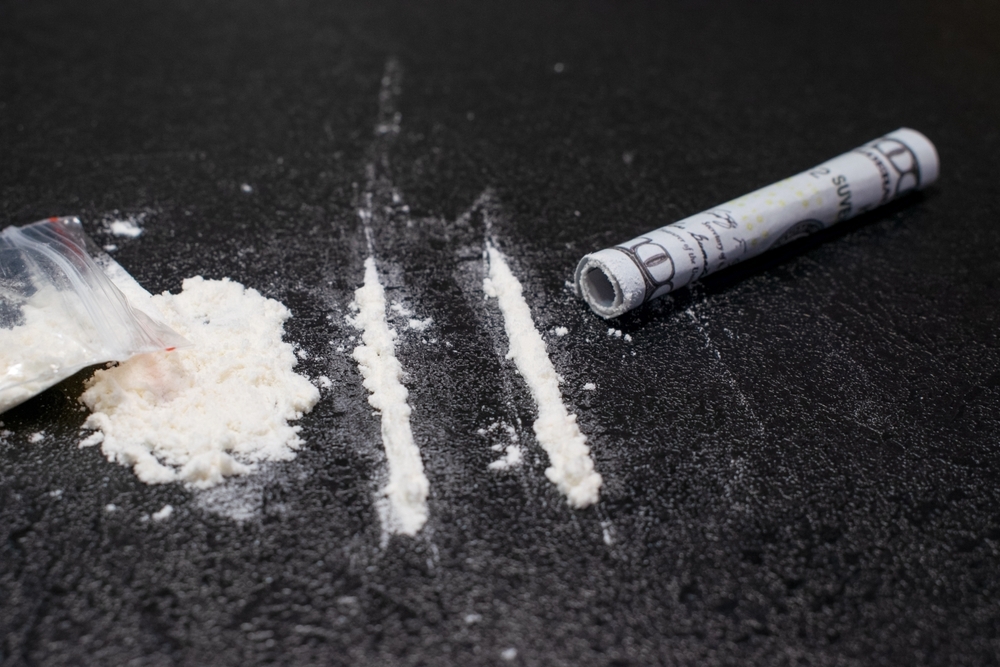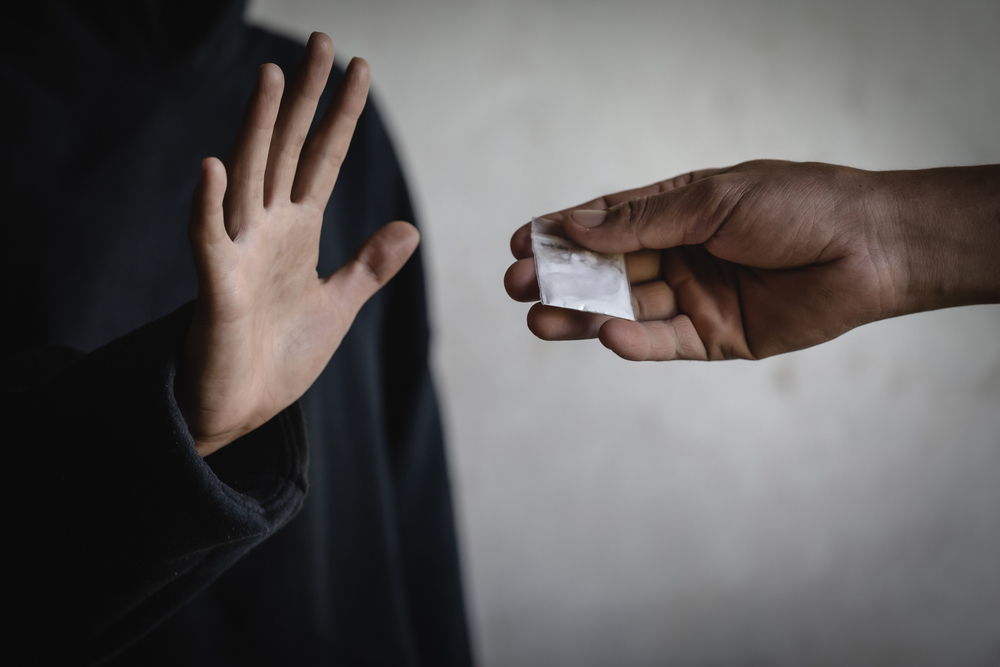Last Updated:
July 31st, 2025
Cocaine Addiction | Symptoms, Effects and Causes
What is cocaine?
Cocaine is a powerful stimulant drug derived from the leaves of the coca plant, native to South America. It is typically processed into a fine white powder that is snorted, smoked or injected.
Cocaine works by stimulating the central nervous system, creating a rapid but short-lived feeling of euphoria and mental alertness.
In the UK, cocaine is classified as a Class A drug, making it illegal to produce, possess or distribute. Despite its illegal status, its use remains widespread due to its intense effects. However, the consequences of using cocaine far outweigh the temporary highs, with serious risks to both physical and mental health.
Cocaine usage in the UK
Cocaine use in the UK has become a significant concern in recent years, with its prevalence often linked to the country’s heavy drinking culture. Many individuals turn to cocaine because it can suppress some of alcohol’s effects, enabling them to consume more alcohol without feeling as intoxicated. This dangerous combination can fuel binge drinking and risky behaviour, creating a cycle that’s hard to break.
However, the rise in cocaine usage isn’t solely due to social habits. Drug trafficking operations from South America and other regions have become increasingly sophisticated, allowing for a steady flow of cocaine into the UK.
This expanded supply has driven prices down, making cocaine more accessible. According to Statista, the price of cocaine has fallen from $178 per gram (approximately £135) to $110 per gram (around £83). While it remains expensive, this price reduction has enabled more frequent use among those who could already afford the drug, contributing to its widespread availability and use.
Struggling with an addiction? If you are ready to seek help, reach out to us today, and a member of our compassionate team will help you find the best option for starting your recovery journey.
Is cocaine addictive?
Cocaine is one of the most addictive substances due to its powerful impact on the brain’s reward system. When used, it triggers a surge of dopamine, a neurotransmitter associated with pleasure and reward. The dopamine transporter normally recycles dopamine after it is released, or when cocaine inhibits this transporter, it prevents dopamine from being taken back up. This keeps dopamine outside cells longer and changes how cells function and how a person behaves.
This temporary high is followed by a sharp emotional crash, leaving users feeling down or irritable. This crash often drives people to take more cocaine, creating a dangerous cycle of repeated use. Over time, the brain becomes dependent on the drug to feel pleasure, making it increasingly difficult to experience joy without it. This is why cocaine addiction can develop quickly and be incredibly hard to overcome without professional help.
What Is Cocaethylene?
Cocaethylene is a dangerous by-product formed when cocaine and alcohol are used together. This toxic chemical is created in the liver and can remain in the body longer than cocaine alone, making its effects more harmful. While some believe combining alcohol and cocaine enhances their high, the reality is far more dangerous.
The combination has been linked to many drug-related deaths, highlighting the critical importance of understanding its deadly potential. Frequent cocaine users often mix the drug with alcohol, unknowingly increasing their risk of life-threatening consequences.
What are the signs of cocaine addiction?
Recognising the signs of cocaine addiction is crucial, whether you are concerned about your own use or worried about someone close to you. Addiction can develop quickly, with noticeable changes occurring both physically and mentally. The sooner these signs are identified, the sooner help can be sought.
- Weight loss: Regular cocaine use can suppress appetite, leading to significant weight loss.
- Runny or bloody nose: Frequent snorting damages nasal tissues, causing persistent nosebleeds.
- Dilated pupils: Enlarged pupils are a telltale sign of stimulant use.
- Insomnia: Cocaine disrupts sleep patterns, making restful sleep difficult.
- Mood swings: Users often swing between extreme highs and crushing lows.
- Paranoia: Long-term use can cause delusions or even hallucinations.
- Anxiety and irritability: Cocaine can intensify feelings of stress, making users more easily agitated.
- Secretive behaviour: Users may become evasive or defensive when questioned.
- Financial issues: Cocaine is expensive, and funding a habit can cause significant financial problems.
- Neglected responsibilities: Work, family and social commitments may be disregarded.
- Risky behaviour: Reckless actions or illegal activities may become more frequent.
Spotting these signs early can be lifesaving, providing the opportunity to seek help before the addiction worsens.
Do I have a cocaine addiction?
Addiction can be insidious, creeping in before you even realise it. Cocaine users often believe they have control until the drug starts interfering with their lives. While friends or family may notice changes, it can take time for the individual to recognise the problem.
If you’re unsure whether your relationship with cocaine has become problematic, consider the following questions:
- Do you rely on cocaine to feel normal or cope with stress?
- Have you found yourself needing more cocaine to experience the same high?
- Do you experience intense cravings or feel unwell when not using cocaine?
- Has your cocaine use negatively impacted your relationships, work or finances?
- Do you mix cocaine with alcohol or other substances despite knowing the risks?
- Have you attempted to quit but found it too difficult or experienced relapses?
If you answered ‘yes’ to any of these questions, consider reaching out for professional support. Recognising the issue is a brave first step toward recovery.
Where can I get help for a cocaine addiction?
Professional rehab programmes provide the best chance of overcoming cocaine addiction. These programmes combine medical treatment with therapeutic support tailored to your needs. Treatment typically begins with a thorough assessment to create a personalised recovery plan.
The first stage is usually detox, where trained professionals provide medical supervision to manage withdrawal symptoms safely. Cocaine withdrawal can be intense, both physically and mentally, which is why a supportive environment is essential.
After detox, therapy helps individuals address the underlying causes of their addiction and develop healthier coping mechanisms.
Common therapies include cognitive behavioural therapy (CBT), which helps identify and change negative thought patterns and group counselling, where shared experiences encourage support. Holistic therapies such as yoga, art therapy and mindfulness sessions can also promote emotional healing and well-being.
Aftercare is equally important, ensuring that individuals continue receiving support even after leaving a rehab facility. This can include follow-up appointments, support groups and relapse prevention plans designed to maintain long-term recovery.
Take the first step
If you or someone you care about is struggling with a cocaine addiction, know that help is available. Seeking professional support can be life-changing, offering the tools and guidance needed to reclaim your life. Don’t wait any longer, and take that first step today by reaching out to healthcare providers or addiction specialists. Recovery is possible, and a healthier, brighter future is within your reach.
Our compassionate team are ready and available to take your call, and guide you towards lasting the lasting addiction recovery you deserve.
Frequently Asked Questions
(Click here to see works cited)
- Buchholz, Katharina and Felix Richter. “Infographic: The Street Price of a Gram of Cocaine.” Statista Daily Data, 27 June 2023, www.statista.com/chart/18527/cocaine-retail-steet-prices-in-selected-countries/.
- Verma V. Classic Studies on the Interaction of Cocaine and the Dopamine Transporter. Clin Psychopharmacol Neurosci. 2015 Dec 31;13(3):227-38. doi: 10.9758/cpn.2015.13.3.227. PMID: 26598579; PMCID: PMC4662164.
- Alexis, Jada T. “Cocaine, Cocaethylene and Ethanol in Postmortem Blood Submitted to the New York City Office of Chief Medical Examiner.” CUNY Academic Works, academicworks.cuny.edu/jj_etds/193. Accessed 12 Dec. 2024.



